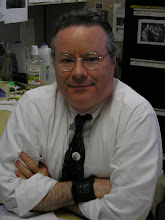Technology doesn't solve problems. You and I know that. Oh, it answers questions. It solves puzzles. It enables us to do things we've not been able to do before. And that can assist us in our problem-solving. That's for sure. But it doesn't solve problems. It just changes the way we handle them. And it changes the nature of the problems. Take counterfeiting, for example. Thanks to sophisticated technology, it has become necessary to keep one step ahead of counterfeiters by almost continually changing the designs on our currency. We invent something, someone finds a way to use it to our disadvantage, and we then have to invent something to counter it. It's been happening that way as far back as we have records. A quick look at the history of weaponry will show that very pattern.
This is a subject that has been on my mind for some time, as you can tell if you've followed my rantings here. This latest ranting was sparked by a silent movie from the 1920s I watched last night. In observing the clothing and style, the architecture, the mannerisms of the people in the movie, I began to picture myself in a theatre, taking in the total experience of watching movie in 1924. The voices of people around me, the smell of cigar smoke wafting in from the lobby, the grand architecture of the movie palace, the fancy designs on the seats, the incredible background music, the sidewalk in front of the theatre, the dress and hairstyles of the people greeting each other on that sidewalk, the elegant style of their greetings. What looks to me like exaggerated gesticulation must have been looked at differently in 1924. But the most fascinating thought of all was the fact that the movie industry went on like that for over three decades. Three decades!!! How much sooner could they have invented sound if all of the effort put into building and designing the movie palaces, composing the background music, training actors in gesticulation, etc., went instead to finding a solution to the fact that they didn't have sound, what seems to us a perfectly necessary ingredient in a movie!?!!! How could they stand having that kind of incompleteness for so long?!?
Well, we've learned from the experience. We don't wait that long anymore before inventing things. In fact, we invent things like our jobs depend on it (and all too often, it seems they do). When it seems financially feasible, we construct big-box theatres made of the cheapest ticky-tacky we can find as quickly as possible. And when something different becomes more financially feasible, we raze the theatre and put up a new ticky-tacky big box retailer in its place (but not without enlarging the parking lot and adding room for a few more new businesses, making it all the more necessary that we drive to them instead of walking, the sidewalks we put around it only to be used by people whose car just broke down in the vicinity).
The lack of sound in movies made art, craft, and culture into a necessity. When certain things are no longer necessary, they become anachronisms. So what happens when culture itself becomes an anachronism? We have to choose it. To be continued....
Subscribe to:
Post Comments (Atom)

No comments:
Post a Comment